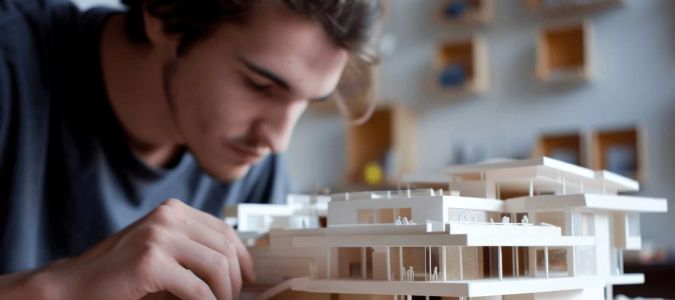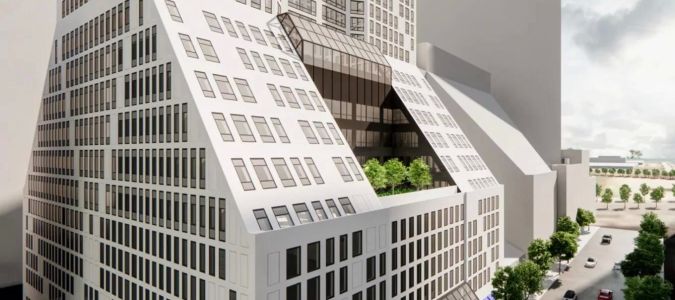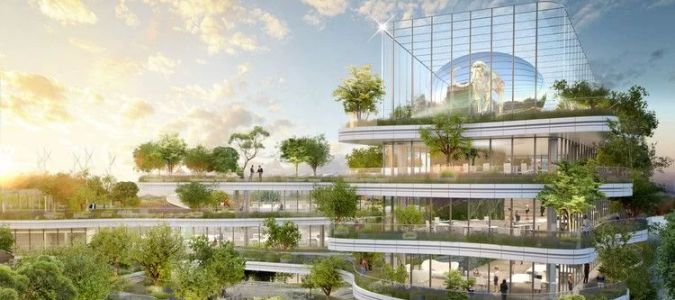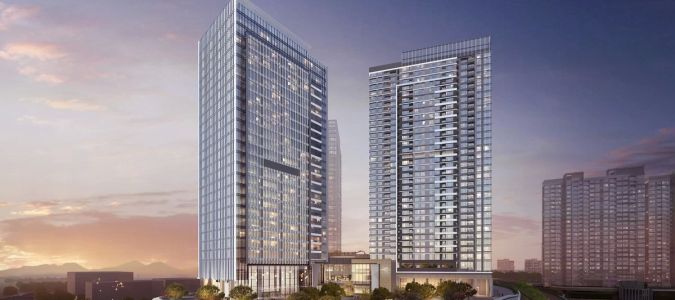Architecture Firms Specializing in Designing Eco-Friendly Commercial Buildings
- The Importance of Eco-Friendly Design in Commercial Buildings
- Sustainable Design Principles Used by Architecture Firms
- Top Architecture Firms Specializing in Eco-Friendly Commercial Buildings
- Notable Case Studies of Eco-Friendly Commercial Buildings
- The Future of Eco-Friendly Architecture in Commercial Design
1. The Importance of Eco-Friendly Design in Commercial Buildings
As sustainability becomes a global priority, businesses and property developers are increasingly turning to eco-friendly architecture firms to design commercial buildings that are not only functional but also environmentally responsible. Eco-friendly commercial buildings are designed to reduce energy consumption, minimize waste, and lower the carbon footprint of the structure. This is achieved through careful planning and the use of sustainable materials and energy-efficient technologies.
With the rise in awareness about climate change and environmental degradation, companies are seeking ways to build and operate in greener ways. By investing in sustainable architecture, commercial properties can benefit from reduced operating costs, improved employee health, and a stronger corporate image. This focus on eco-friendly design is not just a trend but a long-term shift toward a more sustainable future for the built environment.
2. Sustainable Design Principles Used by Architecture Firms
Eco-friendly architecture firms focus on a set of key principles when designing commercial buildings. These principles ensure that the building's design maximizes sustainability while minimizing environmental impact. Some of the core sustainable design principles include:
2.1 Energy Efficiency
Energy-efficient design is central to eco-friendly commercial buildings. Architecture firms focus on maximizing natural light, incorporating renewable energy sources like solar panels, and using advanced insulation materials to reduce the energy needed for heating, cooling, and lighting. Smart building technologies, such as automated lighting and climate control systems, are also implemented to optimize energy use.
2.2 Water Conservation
Water conservation is another critical aspect of sustainable commercial building design. Architecture firms use water-efficient fixtures, rainwater harvesting systems, and sustainable landscaping practices to minimize water usage. Green roofs and permeable surfaces also help manage stormwater runoff, reducing the strain on municipal water systems.
2.3 Sustainable Materials
Using eco-friendly, renewable, and locally sourced materials is a key principle in sustainable design. Architecture firms incorporate materials like bamboo, recycled metal, and low-VOC paints that are not only environmentally friendly but also contribute to healthier indoor air quality. Additionally, the use of modular construction and prefabricated components reduces waste and allows for quicker assembly.
3. Top Architecture Firms Specializing in Eco-Friendly Commercial Buildings
There are several architecture firms around the world that have gained recognition for their focus on sustainable and eco-friendly commercial designs. These firms specialize in creating green buildings that meet or exceed international environmental standards. Some of the leading architecture firms in this field include:
3.1 Foster + Partners
Foster + Partners is a global leader in sustainable architecture. The firm has designed several high-profile eco-friendly commercial buildings, including the Bloomberg Headquarters in London, which is one of the most sustainable office buildings in the world. Foster + Partners emphasizes energy efficiency, water conservation, and the use of sustainable materials in all their designs.
3.2 Gensler
Gensler is another prominent firm specializing in sustainable commercial architecture. The firm’s design philosophy focuses on creating buildings that support both environmental sustainability and occupant well-being. Gensler’s projects include the Bank of America Tower in New York City, which incorporates advanced green technologies such as energy-efficient glass and sustainable heating and cooling systems.
3.3 Perkins+Will
Perkins+Will is known for its commitment to creating healthy and sustainable spaces. The firm has been involved in numerous eco-friendly commercial projects, such as the Autodesk Toronto office, which features energy-efficient systems, green roofs, and a focus on indoor air quality. Perkins+Will is a pioneer in integrating sustainability into both the design and construction phases of a project.
4. Notable Case Studies of Eco-Friendly Commercial Buildings
Examining real-world examples of eco-friendly commercial buildings provides insight into how architecture firms are applying sustainable design principles. Here are a few noteworthy case studies:
4.1 The Edge, Amsterdam
The Edge is a commercial office building in Amsterdam that sets a new standard for sustainability. Designed by PLP Architecture, the building is powered by renewable energy and features energy-efficient systems, including smart lighting and climate control. The Edge is known for its use of green roofs, solar panels, and advanced water management systems that make it one of the greenest office buildings in the world.
4.2 The Green Building, Boston
Located in Boston, The Green Building is a prime example of sustainable design in commercial architecture. The building is LEED Platinum certified and features energy-efficient HVAC systems, natural lighting, and a rooftop garden that helps reduce the building's environmental impact. The building also incorporates green building materials and promotes the use of public transportation among its tenants.
5. The Future of Eco-Friendly Architecture in Commercial Design
The future of eco-friendly commercial building design looks promising. As technology continues to advance, architects will have even more tools at their disposal to create highly efficient, sustainable buildings. Innovations in renewable energy, building materials, and smart technology will continue to push the boundaries of what is possible in green architecture.
Additionally, as climate change becomes an increasingly urgent global issue, the demand for eco-friendly commercial buildings is expected to rise. Architecture firms will need to adapt and innovate to meet these challenges, ensuring that future commercial spaces are not only environmentally sustainable but also comfortable, healthy, and productive for their occupants.
If you are looking to design or invest in eco-friendly commercial buildings, it’s essential to work with experienced architecture firms that specialize in sustainable design. Visit [10 Jay Street] to explore innovative solutions and discover how you can create a greener, more sustainable future for your commercial properties.








